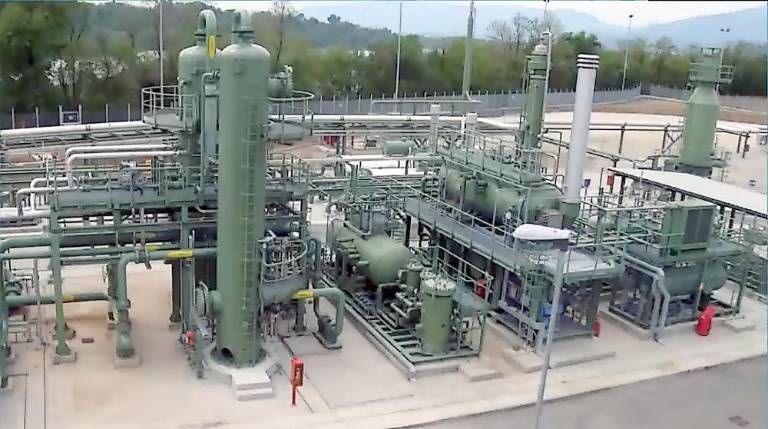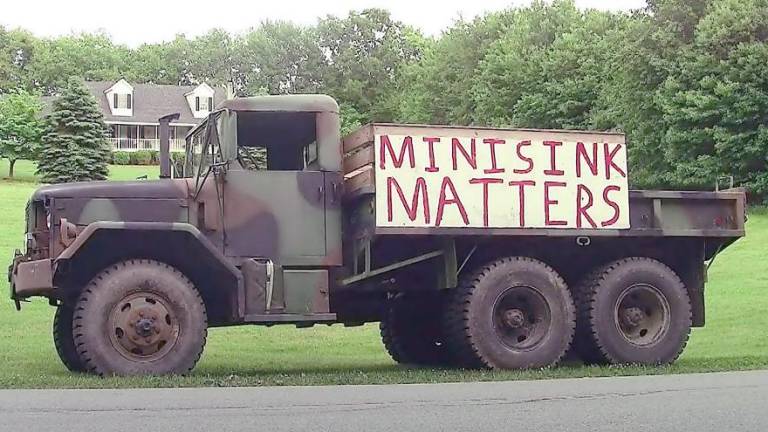Protecting health and water are top concerns surrounding gas compressor and pipeline projects
West Milford. Those with experience living near compressor stations discuss expansion and pipeline projects in Wantage and West Milford during a virtual town hall led by Empower NJ. Environmental advocates share ideas for how residents can get involved as the approval process moves ahead.


Her health was deteriorating so badly, Asha Canalos abandoned her home on an organic farm in Minisink, N.Y., and move across the country.
Canalos lived about a quarter mile from a compressor station on the Millennium pipeline. After it began operations, she started feeling dizzy, lightheaded, and muscle pain, symptoms that would only get worse.
They didn’t get better until she moved to Albuquerque, N.M. She links her symptoms to the compressor station near her former home, but their cause is difficult to prove.
Health problems were just an example of the hazards discussed at a virtual town hall meeting, held by Empower NJ, that discussed pending compressor stations to be built by the Tennessee Gas Pipeline Company in West Milford, N.J., and Wantage, N.J.
In June, Tennessee Gas proposed its East 300 Upgrade, which includes a new 19,000 horsepower fracked gas compressor station along its pipeline in West Milford at 960 Burt Meadow Road, and a new 20,000-horsepower compressor at 164 Libertyville Road in Wantage that will triple the size of the existing compressor.
The pipeline sends methane gas harvested from the Marcellus Shale through Pennsylvania into New Jersey through Sussex, Passaic, and Bergen counties before it reaches its destination in Westchester County, N.Y., where it will be used by Con Edison.
Matt Smith, New Jersey director of the Food and Water Watch, said the gas is going to be used so new homes in New York State can be developed with natural gas.
“None of that gas is for use here,” he said.
Reservoir supplies 3 million people
Much of the focus was on the proposed West Milford compressor, which is inside the Highlands Preservation Area and near streams that flow into the Monksville and Wanaque Reservoirs. Any contamination of those reservoirs would threaten the water supply for three million New Jersey residents.
The Highlands Council in November approved Tennessee Gas’s application for the West Milford compressor and a flood hazard verification permit.
Jeff Tittel, director of the New Jersey Sierra Club, said the exemption through which the pipeline expansion received its approval from the Highlands Council was not designed to build a sperate line. There was no way the project should have been certified, he said.
He said the New Jersey Department of Environmental Conservation (DEP) must certify it will not alter the water quality, but that there’s “no way” the DEP can give such an assurance. He said Gov. Phil Murphy can reject the permit.
“He has the authority,” Tittel said. “He can use it, and he can stop it.”
Compressor stations are usually unstaffed and rely on electronics. The Wantage compressor is gas-fired, while the West Milford compressor is expected to be powered by electricity.
Sounds like a jet engine
Roseland, N.J., Councilwoman Jean Perrotti lives 200 yards away from a compressor station in her town. One night, she heard what sounded like a jet engine hovering over her home.
Her husband walked over to investigate and found it was the compressor station making the noise. They had to call Texas to get the problem fixed.
Tennessee Gas pressurizes natural gas to move it through the pipeline. When there is too much pressure, gas must be released in an event called a “blowdown.”
Dr. Daniel Wolk said compressor stations emit nitrous oxide, carbon monoxide, volatile organic compounds, formaldehyde — which has been linked to cancer and headaches — and particulate matter.
Speakers also pointed to what they called Tennessee Gas Pipeline’s “poor environmental track record.”
Renee Allessio of Sustainable West Milford talked about the damage the 300-line did to Lake Lookover in Hewitt, N.J., and Bearfort Waters in West Milford, including the siltation and destruction of waterways through mudslides. There has also been increased flooding and impacts to drinking water wells.
“They get the profit, and we the taxpayer have to pay the price,” Allessio said.
West Milford had to apply for a $620,000 no net-loss grant to replace thousands of acres of trees. Vernon Township, N.J., received a similar grant, but Tittel said most of those trees died because they weren’t planted properly.
Next steps
The next steps in the process include the environmental assessment, which could be issued at any time. May is the earliest the Federal Energy Regulatory Commission can grant approval.
Tennessee Gas will also need several permits from the DEP before construction can begin.
Smith of Food and Water Watch said it could take longer, and that the air operating permit for the Wantage compressor expansion should be at least a year out. This could give residents time to fight the project, he said.
Sam DiFalco, North Jersey organizer for Food and Water Watch said after pressure was applied, Gov. Murphy rejected a compressor in Franklin Township, N.J., that would have pumped gas to New York.
“The governor can instruct the DEP to reject the permit,” said DiFalco. “But he won’t unless there’s enough pressure for it. We have won these fights before.”
“The governor can instruct the DEP to reject the permit. But he won’t unless there’s enough pressure for it. We have won these fights before.” Sam DiFalco, Food and Water Watch